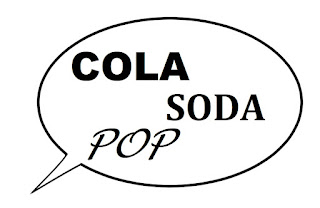As the holidays
approach, I look forward to my family coming from all around for the usual –
food, festivities, football, and fighting. Regarding the last thing, we no
longer have dramatic battles about important subjects. However, once someone
brings up the difference between Midwestern and West Coast dialects, it’s just
a matter of time before the Brussels sprouts start flying.
 |
| They're all the same, but they say different things |
It’s a simple thing:
In California, someone would describe the highway they would take by saying,
“I’ll take the 405,” whereas someone around Chicago would say, “I’ll take 405.”
The difference is one word – “the.” Neither way is better than the other; they
are two different ways of saying the exact same thing. Such holiday disputes
never truly get resolved – nor should they – but this highlights the importance
of those little parts of dialogue that make a character feel genuine.
In fairness, not many
people will consciously notice that difference. However, a book about
Chicagoans where they “take the 294” will sound off-key to Midwesterners, and
Angelenos will feel that “take 405” was bad editing. In this regard, it becomes
a distraction. More to the point, it suggests the author was not fully invested
in making their characters multi-dimensional.
Local dialects and
mannerisms are wide and varied, and most people won’t notice the occasional
mistake. However, when you, the writer, examine the way people speak and how
they shape certain phrases, you start giving that character more definition.
That character stands out on the page, and perhaps it’s because they use the
phrase “grocery sack” instead of “grocery bag” (welcome to the southern
Midwest.)
Use of the word “soda” versus the word “pop” or “cola” is a prime example, as this great map shows. It’s surprisingly well-defined (and anyone within one-hundred miles of Atlanta
calls every dark cola “Coke” due to that area being the main Coca-Cola
distribution hub.) Until a few years ago, “sweet tea” was the Deep South
version of “iced tea” for the colder climates. Even the predominant sport of a
particular region will influence how they talk through their metaphors –
baseball euphemisms are not as common in Alabama compared to the football
metaphors (Roll Tide!)
This also goes for
social groupings as well. For anyone who has been in Alcoholics Anonymous,
Narcotics Anonymous, Al-Anon, etc, there is a particular jargon used among the members. “Share” is used as a noun – when someone talks to the group, that
is their “share.” Terms like “ownership” and “choice” have an entirely
different weight to them. If someone writes about an AA meeting without knowing
this lingo, only AA members will notice the weakness of the story. However, if
the author incorporates these terms, AA members will feel it is genuine, and
the average reader will feel more invested in this writing due to its detail.
This advice is not
just a discussion about how our language is different throughout the great
Melting Pot. If you write about someone in Atlanta choosing between sweet tea
or a Coke before getting on the highway to go to their AA meeting, this is
priceless. Most stories are about something else. There are two important
takeaways from this post – pay attention to character detail when it’s
required, and when possible, give characters details.
It may sound odd, but
when the writer gives characters deliberate little quirks and habits, they pay
off in big ways. More importantly, if those little eccentricities stand out
because they are against the cultural norm, it provides an opportunity for the
character to be defined by that difference. No average, native Chicagoan would
ever say, “y’all.” Therefore, if the character does use that word, it gives the
writer a chance to explain how it came to be – the character spent two
memorable weeks in Baton Rouge or was a lifelong fan of Roy Clark. People will
remember that.
And hopefully, someone
will remember that when I say, “take 294,” it means I am a lifelong
Midwesterner who will always think that “take the 405” just sounds weird. See
you this Thanksgiving.

No comments:
Post a Comment